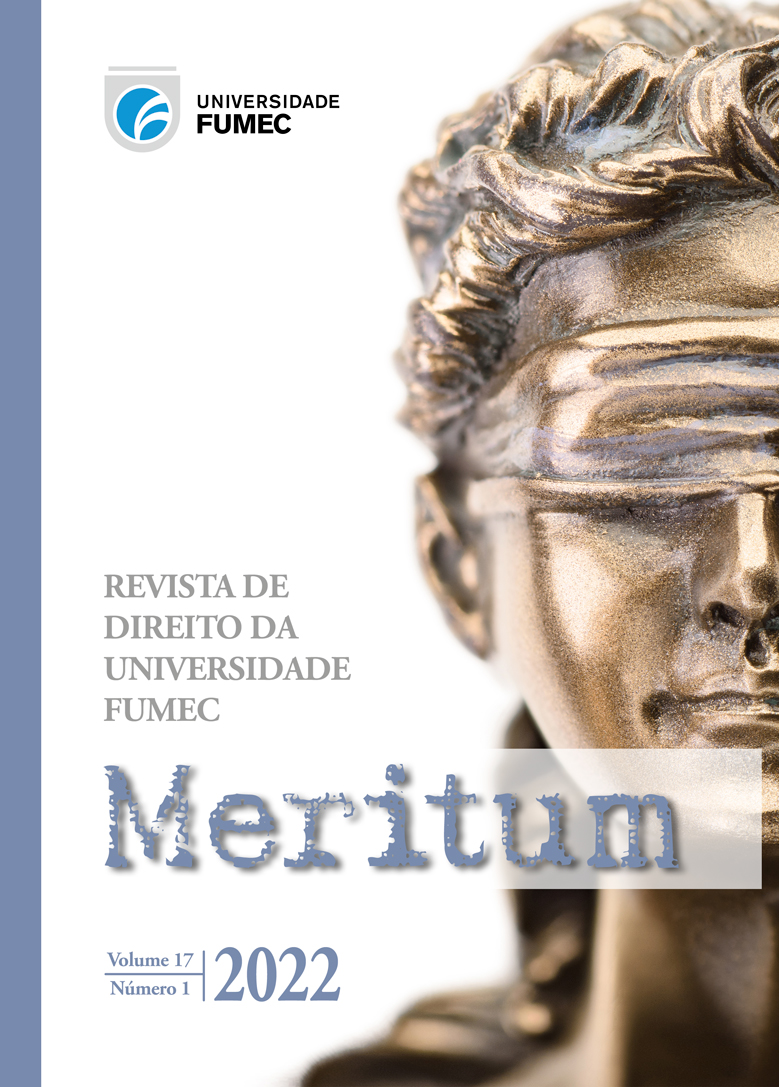A CONSTITUTIONAL MUTATION AS A SOCIAL PHENOMENON VS. ITS APPLICATION BY BRAZILIAN SUPREME COURT
A CRITIQUE TO THE DEFENSE OF EXPANDING GENERAL BINDING EFFECTS TO CONCRETE JUDICIAL REVIEW
DOI:
https://doi.org/10.46560/meritum.v17i1.8499Abstract
Academic and jurisprudential discussions about the phenomenon of constitutional mutation are increasingly in evidence in the Brazilian legal scenario. Nevertheless, considering, through a literary review, the context of the emergence of the category, it is perceived that the theme has been incorporated by Brazilian jurisprudence, especially by the Supreme Federal Court, in a mistaken way, so that there is an expansion of the powers of the Justices of the Court, which have become true political actors with an interest in making decisions that observe social-political conveniences. The longing of Justices of the Court to expand their powers through the phenomenon of constitutional mutation can be verified through the supposed mutation that occurred in art. 52, item X, of the Federal Constitution. This paper criticizes how the phenomenon of constitutional mutation was incorporated by Brazilian law, in addition to bringing warnings about the alteration of the meaning of constitutional norms by a Power that is not even a derived constituent and may lead to serious violations of constitutional precepts. The processes of informal amendment of the constitutional text should be used in an exceptional and complementary way, in addition to living together – although not mistaken by – with the formal processes of constitutional revision, given that only the review process is not sufficient to maintain the normative force of the Constitution and adapt it to social reality. Thus, it is suggested that a hermeneutic stance be adopted in which the updating of the constitutional should not abandon the principles that underlie Democratic Rule of Law.
Keywords: Constitutional mutation. Supreme Court. Social reality.
Downloads
Published
Issue
Section
License
Autores que publicam nesta revista concordam com os seguintes termos:
- Autores mantém os direitos autorais e concedem à revista o direito de primeira publicação, com o trabalho simultaneamente licenciado sob a Licença Creative Commons Attribution que permite o compartilhamento do trabalho com reconhecimento da autoria e publicação inicial nesta revista;
- Autores têm autorização para assumir contratos adicionais separadamente, para distribuição não-exclusiva da versão do trabalho publicada nesta revista (ex.: publicar em repositório institucional ou como capítulo de livro), com reconhecimento de autoria e publicação inicial nesta revista;
- Autores têm permissão e são estimulados a publicar e distribuir seu trabalho online (ex.: em repositórios institucionais ou na sua página pessoal) a qualquer ponto antes ou durante o processo editorial, já que isso pode gerar alterações produtivas, bem como aumentar o impacto e a citação do trabalho publicado (Veja O Efeito do Acesso Livre).






